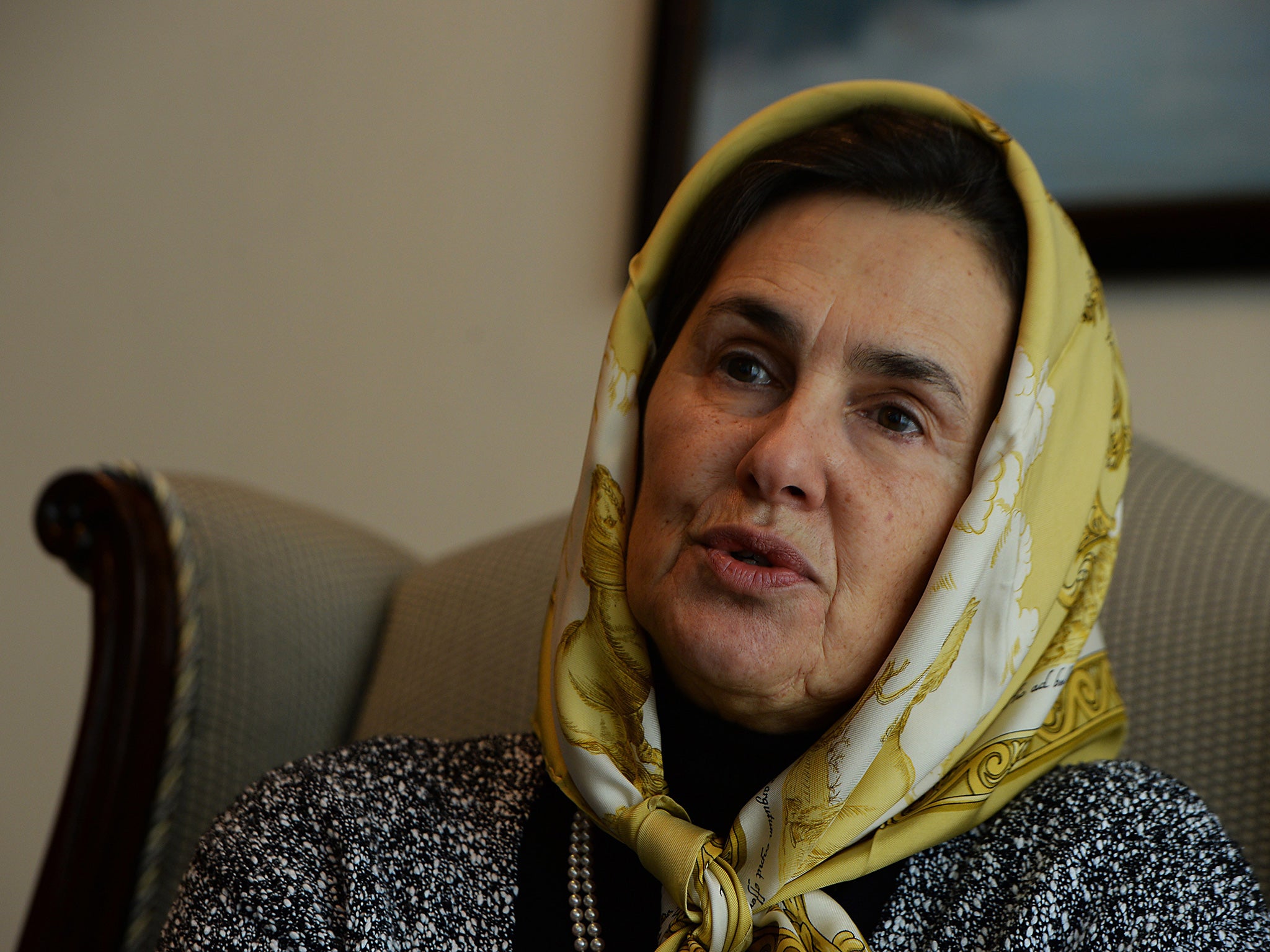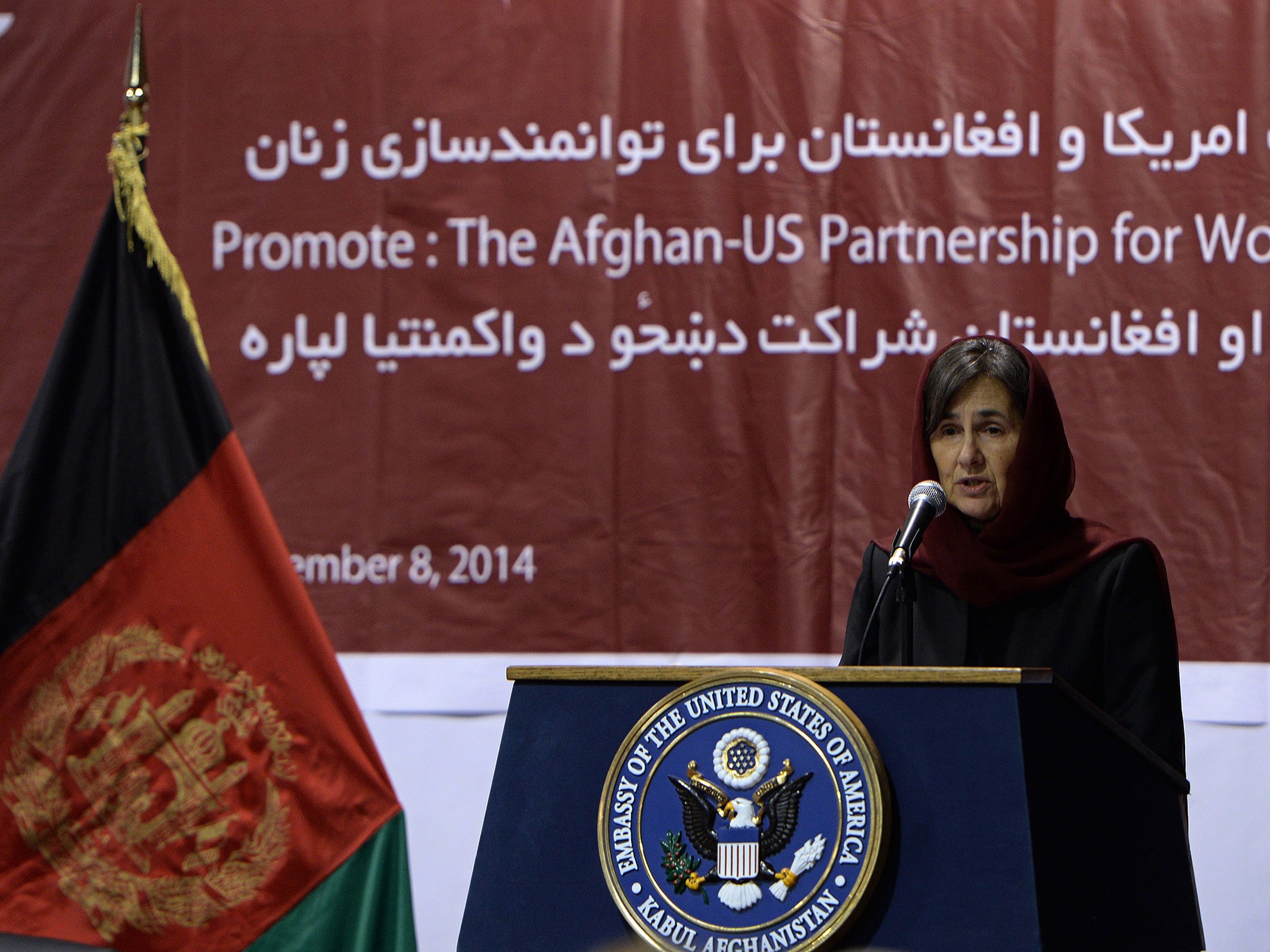Afghanistan's first lady: lauded abroad, lambasted at home
Her faith (she's Christian) and feminism have made President Ghani's wife a divisive figure

Your support helps us to tell the story
From reproductive rights to climate change to Big Tech, The Independent is on the ground when the story is developing. Whether it's investigating the financials of Elon Musk's pro-Trump PAC or producing our latest documentary, 'The A Word', which shines a light on the American women fighting for reproductive rights, we know how important it is to parse out the facts from the messaging.
At such a critical moment in US history, we need reporters on the ground. Your donation allows us to keep sending journalists to speak to both sides of the story.
The Independent is trusted by Americans across the entire political spectrum. And unlike many other quality news outlets, we choose not to lock Americans out of our reporting and analysis with paywalls. We believe quality journalism should be available to everyone, paid for by those who can afford it.
Your support makes all the difference.With her soft French accent, self-deprecating laugh and modest Western attire, Afghanistan’s first lady charmed a Washington audience this week at her first public appearance in the US in the nearly five months since her husband, Ashraf Ghani, was inaugurated as President in September.
The warm reception contrasted sharply with the one that Rula Ghani, a Lebanese-born Christian, has received at home. Her religious background and modern views have provoked a barrage of criticism and hostility in the traditional, male-dominated Muslim society, where many women do not leave their homes unveiled.
Mrs Ghani’s message here, echoed in her recent interviews and speeches, was carefully modulated to dispel her image as a crusading feminist intruder among older, conservative Afghans – but without alienating a rising generation of young, educated Afghan women to whom she is a natural role model.
The event came during a two-week visit by Mrs Ghani to the United States, where she spent much of her adult life and where her two children live. Last week, she flew to Texas to visit the former First Lady Laura Bush, who has long supported the cause of Afghan women. This week in Washington, she has attended charitable board meetings. On Wednesday, she spoke before about 200 people at the Centre for Strategic and International Studies, a Washington think-tank. Mrs Ghani, 66, was educated in Paris and the US and met her husband at the American University of Beirut. She confirmed that she is Christian but did not elaborate on her religious beliefs.
“In Islam the place of women is an important place,” Mrs Ghani said, adding that Afghan history is full of “formidable” female leaders. She noted that the wife of the prophet Mohamed was a powerful businesswoman, and that Queen Soraya Tarzi – the stylish wife of a reformist Afghan king in the 1920s – helped launch the country’s modern education system.
Yet she played down her own aspirations for power, saying she sees her new role mostly as a “listener and facilitator” for Afghans who seek her help.

Mrs Ghani also skirted the volatile issue of women’s rights, declaring that the widely documented plight of Afghan women – including domestic abuse, forced early marriage, bride barter and imprisonment for eloping – has been unfairly exaggerated by the foreign press and aid organisations.
“They say Afghanistan is the worst country for a girl to be born. Hogwash!” Mrs Ghani exclaimed to laughter.
Mrs Ghani’s balancing act, though carried off with grace and wit, was a result of the condemnation she has encountered at home, simply by virtue of her Christian faith and foreign birth, and the potential damage the new government fears such controversy could do to her Muslim husband’s efforts to modernise the struggling, conflict-ridden nation.
Afghanistan is 99 per cent Muslim, and it is a capital crime there to convert to Christianity. Moreover, the defeat of Soviet forces by Afghan religious militias and the subsequent years of Taliban rule in the 1990s made Afghan society much more conservative than in the early 1970s, when Mrs Ghani first came to live there as a bride.
The President, a former World Bank official, is in a hurry to revolutionise the country’s corrupt and hidebound official culture, and he has already made many enemies. During his candidacy, a smear campaign began against his wife. Critics warned that she would seek to convert Afghan women, and doctored photos showed her husband praying in a church. There were even suggestions that he should divorce her. But on inauguration day, the new President publicly saluted Rula as his life partner.
Now, after a period of relative seclusion, the first lady has re-emerged with a less provocative persona, and she is officially referred to as Bibi Gul, a traditional Afghan name that means Flower Lady. “My aim is not to revolutionise,” Mrs Ghani told one interviewer.
Mrs Ghani’s words may help counter her critics’ efforts to tar her as a subversive foreign influence. But merely by travelling alone to the West and appearing in public without her head covered, she is defying Afghan history.
@Washington Post
Join our commenting forum
Join thought-provoking conversations, follow other Independent readers and see their replies
Comments